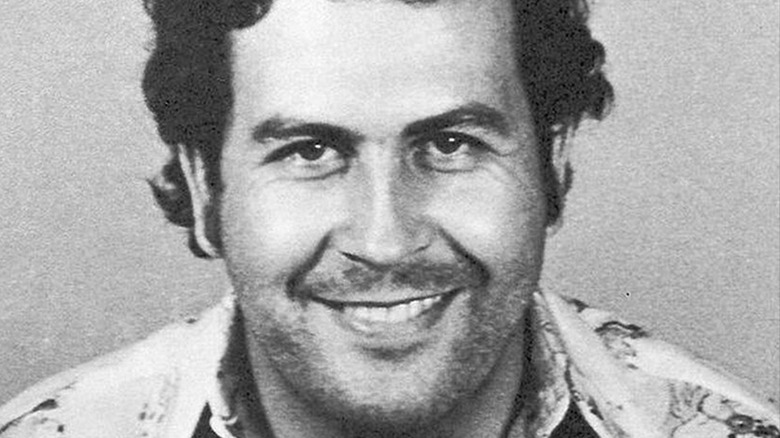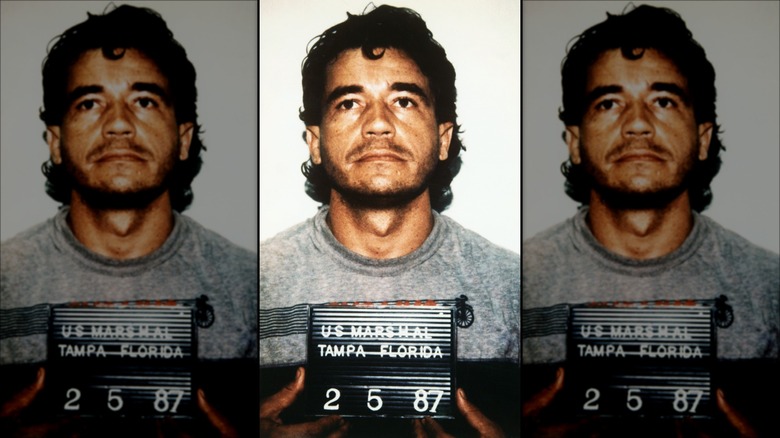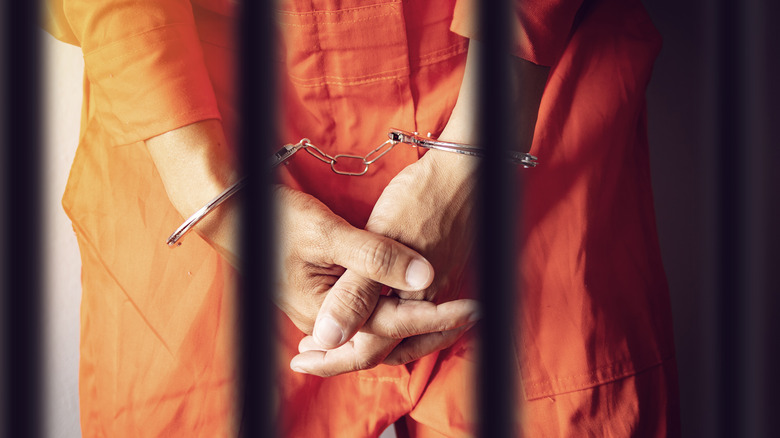The Final Secret A Drug Lord Spilled About Pablo Escobar
True crime fans may be justified in thinking there is little left to learn about Pablo Escobar, whose jaw-dropping story has been told countless times in best-selling true crime books, documentaries, and dramas, most notably the hit show "Narcos." The Colombian drug kingpin was the driving force in South American drug trafficking from the mid-1970s to the 1990s and was ultimately responsible for flooding the world with cocaine. Escobar amassed and managed to hide an immense personal wealth said to be in the region of $25 billion, as well as a legendary status in the world of organized crime, before his dramatic death during a Colombian government raid on his Medellín hideout in 1993, the day after his 44th birthday.
As the head of the Medellín cartel, Escobar oversaw the rise of a drug empire that came to be characterized by brutal violence, and the gangster's willingness to torture and kill opponents when bribery and intimidation didn't get the results he wanted. Like the mafia in the United States, the Colombian drug cartels operated with a code of secrecy, which saw them both corrupting police and officials and coming down hard on those in their ranks they discovered to be police or government informers.
But recent revelations have cast a new light on informant-punishing Escobar, raising the possibility that the kingpin was himself a snitch, who was directly responsible for the capture and imprisonment of one of his fellow Medellín cartel leaders, Carlos Lehder. The tidbit comes from Lehder himself, whose memoir of his career in the drug trade was published in 2024. Here is the story.
Who is Carlos Lehder?
The drug trafficking career of Carlos Lehder is almost as remarkable as that of Pablo Escobar himself. A founder of the Medellín cartel alongside Escobar, Lehder established himself as a canny and intelligent operator who was capable of thinking outside the box to get things done, i.e. to smuggle drugs to wherever they might be profitable. He was a skilled pilot, which therefore made him a powerful smuggler, and set up bases for drug trafficking in the Bahamas, in one case utilizing a private island. He also proved his worth early on by retaliating against those who kidnapped family members of an ally, per PBS's Frontline. With his combination of cunning and ruthlessness, Lehder helped establish the Medellín cartel as one of the most dangerous in the world. As his aspirations in terms of control over Columbia grew, Lehder created his own anti-communist political party, which was also intended to overturn the extradition treaty between Columbia and the U.S. and block cartel members from facing justice.
But despite his aptitude for organized crime, Lehder, like many of his fellow cartel traffickers, lived a wild personal life, which involved extreme hedonism and the emergence of anti-Semitic beliefs that began to take hold (via the Independent). His use of cocaine affected his perception of the world around him. He became obsessed with the Nazi leader Adolf Hitler, and in one incident reportedly executed a love rival in front of several witnesses. He was eventually apprehended in 1987, after years on the Drug Enforcement Agency's radar. And according to Lehder, his partner Pablo Escobar had an unexpected hand in his downfall.
Pablo Escobar was a snitch
As well as denying reports that he became addicted to his own product during his time as a drug kingpin, Carlos Lehder has been adamant in the fact his violent crimes were in the interests of self-preservation, never with the intention of subverting Columbia itself. "I did not participate in any assassination or plot. I have chosen to defend my life in circumstances in which it was life or death. But never against the Colombian government," he told El País. His memoir also makes it clear that he places all responsibility for attacks on public figures at the time squarely on Escobar.
However, one undeniable incident of violence is attributable to Lehder: the murder of one of Escobar's hitmen, which happened after Lehder grew convinced that Escobar was planning to kill him. The killing meant the end of their friendship and led to an unusual form of retribution for Escobar.
According to Lehder's memoir, part of which was published in El País, after his arrest and extradition to Florida in 1987, he was going through court documents with his lawyer when they discovered that a section of text intended to be redacted with the use of a black marker was still readable. It contained the name of the contact who had revealed Lehder's location to the authorities: Pablo Escobar, who showed therefore he was willing to turn informant when it fit his needs.


